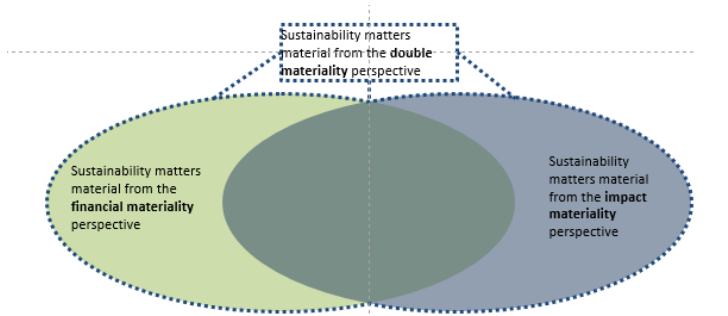The EU Regulation that Will Affect You!

The EU Regulation that Will Affect You!
“The responsibility for transitioning to a sustainably conscious society lies increasingly with companies which will be required to transparently report about their economic, environmental and social impacts,” said Anne Pattberg, Managing Director of PB Consulting GmbH, during the EL/WLA CSR/RG conference in September 2022.

Regulation around non-financial actions, indicators, and reporting is changing significantly within the EU. These changes will impact the gaming industry and its outlook on sustainability, pushing it into greater action for the good of the planet and society. There are three fundamental regulatory changes to note: the EU Taxonomy Directive, Corporate Sustainability Reporting Directive (CSRD) and new non-financial Reporting Standards currently developed by EFRAG. At the EL/WLA RG and CSR Conference, Anne Pattberg explained these changes and broke down what the regulation really means for gaming companies.
EU Taxonomy Directive
The EU Taxonomy Directive aims to “create more transparency, achieve a harmonisation of the understanding of sustainability and prevent "greenwashing." It, most specifically, asks the financial sector to report on their environmental impact and provides clarity by creating a uniform EU classification system for assessing the environmental sustainability of different economic actions. An economic activity can be classified as green or 'environmentally sustainable' only if it “makes a substantial contribution to at least one of the EU’s climate and environmental objectives, while at the same time not significantly harming any of these objectives and meeting minimum social safeguards.” These climate and environmental objectives are:
- Climate change mitigation
- Climate change adaptation
- Water and marine resources
- Circular economy
- Pollution prevention and control
- Biodiversity and ecosystems
This came into force in 2020 and will apply from 2022 for 2021 environmental goals 1 and 2, and for 2023 the environmental targets 3 to 6 must also be reported on.
This allows businesses to prove their progress toward a more sustainable business model. It will affect companies subject to the CSRD, “who will have to submit the turnover, investments and operating costs for ecologically sustainable economic activities” concerning the EU Taxonomy regulation as part of their annual non-financial reporting. This regulation impacts financial institutions, most specifically, asking them to provide information on the environmental impact of their turnover or portfolio.
Though this might not impact all gaming operators now, Anne Pattberg highlighted that it will impact the financial institutions that might be your investors, such as state-owned banks. Their obligations to publish this non-financial information could mean operators have to demonstrate their organisation's adherence to these objectives.
CSRD and Double Materiality
The European Commission first proposed the Corporate Sustainability Reporting Directive (CSRD) on the 21st of April 2021. It significantly enhances the scope of the existing Non-Financial Reporting Directive (NFRD) rules to cover all large companies and all those listed on EU-regulated markets. Specifically, these will be companies with 250 or more employees, 40 million euros sales volume or 20 million euros total assets. Listed SMEs can report using simplified standards.
Additional new requirements for reporting include: The process used to identify stakeholders' material topics; Forward-looking information, e.g. targets and tracked progress against them; Data and information on intangibles (social, human and intellectual capital); Reporting in line with Sustainable Finance Disclosure Regulation (SFDR) and using the European Single Electronic Format (ESEF) and the EU Taxonomy Regulation.
The CSRD redefines materiality to encompass a ‘double materiality’ approach. The EU Commission first introduced the concept of double materiality as part of the Non-Binding Guidelines on NFRD. It understands that risks and opportunities can be material from both a financial and non-financial perspective. Expanding its definition of materiality, the CSRD defines that issues are material from an impact materiality perspective (how does your company impact the environment and society); and a financial materiality perspective (how do sustainability issues impact your company, capital value or cash flow). So “how do you as a business affect society and the environment, and how are society and the environment affecting you?”

For companies, this means redefining what topics are material, considering both impact and financial materiality, significantly increasing the scope for reporting. Now reporting will have to include the overlap between the impact and financial material issues and all the issues from both. “The Materiality Analysis now serves as validation of the already EFRAG predetermined sector-agnostic subjects and is no longer an instrument for identifying essential topics.” Those who have to publish or plan to publish in accordance with the new material topics standards of GRI 2021 at the beginning of 2023 will also be glad to know that the impact materiality perspective for double materiality is aligned with the GRI materiality assessment guidance.
New Reporting Standards (EFRAG)
EFRAG (The European Financial Reporting Advisory Group) is developing new reporting standards for non-financial reporting on behalf of the European Commission. Many working groups have developed this over recent years. This will create reporting standards from the CSRD directive, telling everyone how to report, when and what to report on.
So, what does the future look like?
Anne Pattberg showed that the future of non-financial reporting is fact and figure based. With the goal to allow a transparent and fair view of the company that is comparable to others. This moves away from the old ‘story-telling’ approach, which often highlights happy people and merely positive stories. Furthermore, the future of reporting is based on material issues for the business and its stakeholders. Mandatory within this will be the assurance of the report by an auditor; firstly, in accordance with limited assurance, later, it is planned to create a level-playing field with financial reporting, which means that non-financial information needs to be assured with reasonable assurance. It is crucial that “this will also impact the gaming industry,” so getting ahead of the regulation and aligning yourself with it is critical.
About DigitalRG.com
Our core belief is that all National Lotteries should do their part in providing an equitable solution for society and the environment. This starts with understanding, planning, and acting on those beliefs. DigitalRG.com is a digital platform that saves you time. Our proven process takes lotteries from assessment to achieving any ESG, CSR, Responsible Gaming & sustainability certification easily and well. Sustainability is a journey. However, there is no need to reinvent the wheel to be the most effective. DigitalRG.com aims to make your sustainability journey as impactful and efficient as can be.
Category
Other Blogs

September 06, 2022
Is Blue Carbon the next big thing?

August 08, 2022
Is Europe really dealing with formal duty of care and playing limits?

July 04, 2022
Taking Practical Actions Toward Net-Zero

April 26, 2022
Sports Integrity and Manipulation

May 30, 2025
G4 Partners with SGcertified to Strengthen Auditing Services in Responsible Gambling

May 16, 2025
Nueva reglamentación publicitaria en España

January 20, 2025
The Importance of Accreditation with Lottopar

January 16, 2025
Insights on Anti-Money Laundering (AML) and the Didier Reynders case


